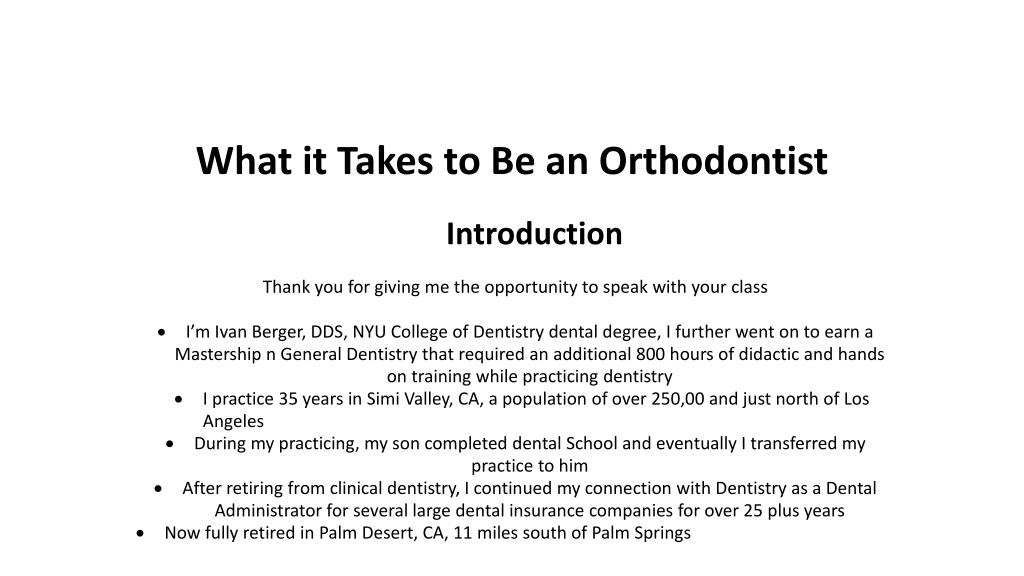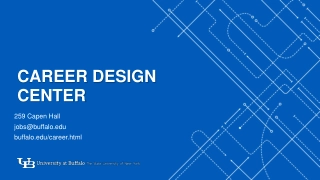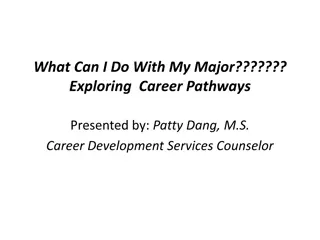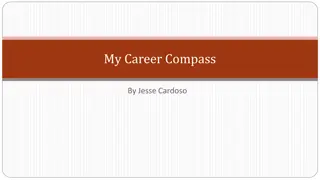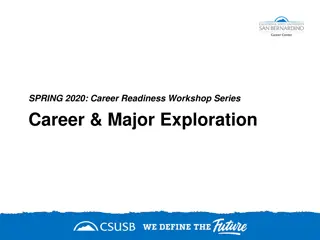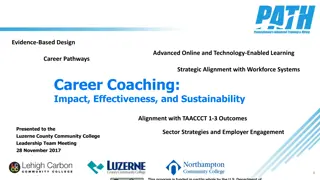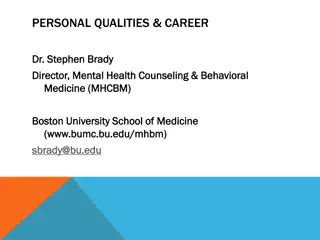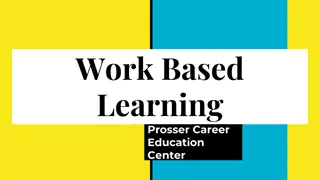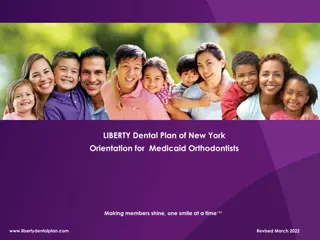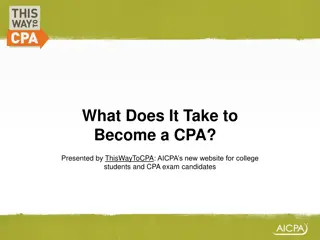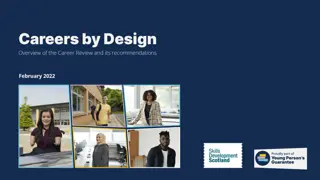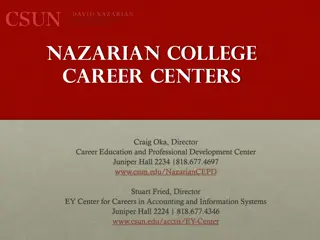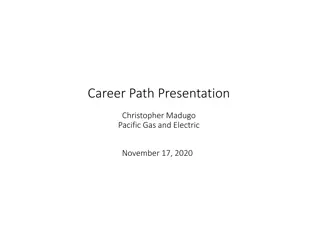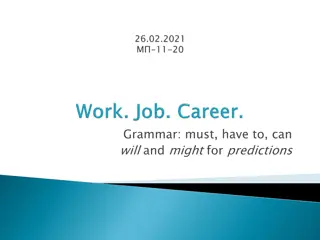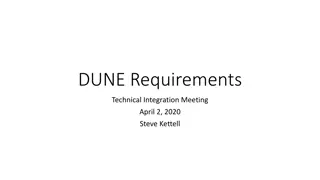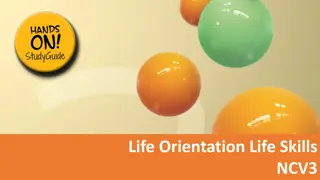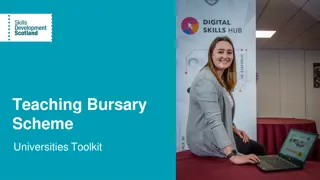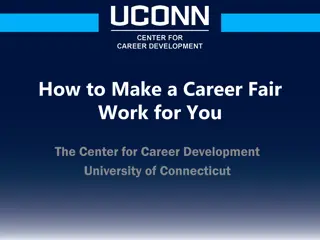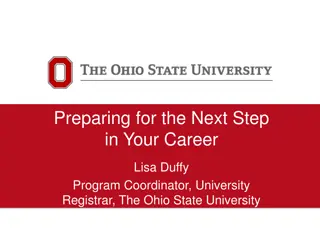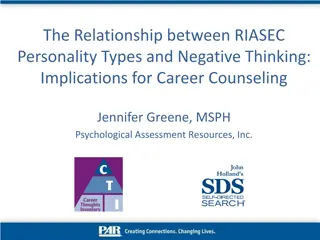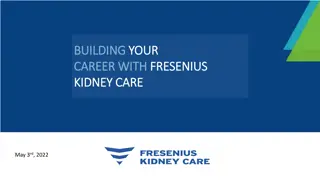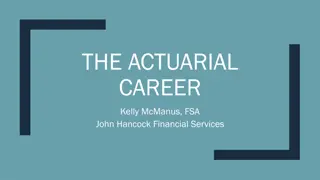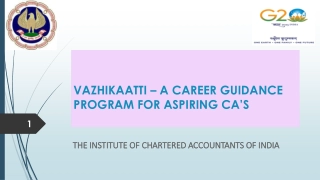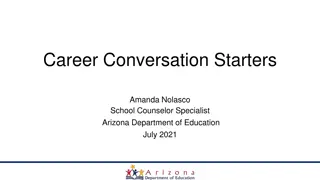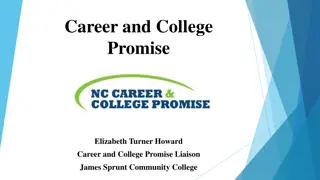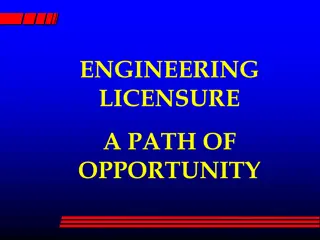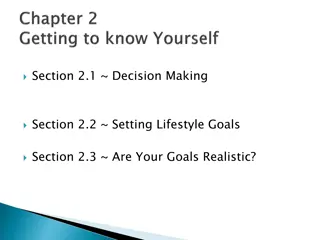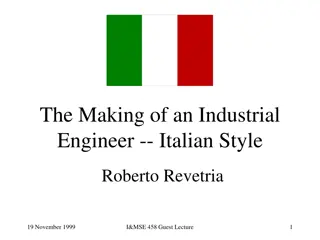Path to Becoming an Orthodontist: Educational Requirements and Career Insights
Dentist Ivan Berger shares insights on the educational pathways to becoming an orthodontist, outlining the commitment required in terms of undergraduate studies, general dentistry training, and specialized orthodontic training. He also discusses the competitive nature of the field, prerequisites for dental school admission, and the financial aspects involved. The journey involves dedication and hard work but offers a rewarding career in orthodontics.
Download Presentation

Please find below an Image/Link to download the presentation.
The content on the website is provided AS IS for your information and personal use only. It may not be sold, licensed, or shared on other websites without obtaining consent from the author. Download presentation by click this link. If you encounter any issues during the download, it is possible that the publisher has removed the file from their server.
E N D
Presentation Transcript
What it Takes to Be an Orthodontist Introduction Thank you for giving me the opportunity to speak with your class I m Ivan Berger, DDS, NYU College of Dentistry dental degree, I further went on to earn a Mastership n General Dentistry that required an additional 800 hours of didactic and hands on training while practicing dentistry I practice 35 years in Simi Valley, CA, a population of over 250,00 and just north of Los Angeles During my practicing, my son completed dental School and eventually I transferred my practice to him After retiring from clinical dentistry, I continued my connection with Dentistry as a Dental Administrator for several large dental insurance companies for over 25 plus years Now fully retired in Palm Desert, CA, 11 miles south of Palm Springs
Educational Pathways to Becoming an Orthodontist Dentistry offers an opportunity to make a difference in your patients health and well-being. It's a career that allows you a chance to be your own boss and own a dental practice. Orthodontics is an amazing and lifelong rewarding dental specialty, an opportunity to preserve and preserve patients smiles Improve patient overall health as ell as self esteem Commitment will require dedication and hard work over 11 years of undergraduate degree, 4 years of general dentistry training followed by 3 years of graduate orthodontic specialty training
First steps Prerequisites at Undergraduate Universities Admission to dental school is highly competitive, GPAs range from minimum 3.3- 3.5 plus DAT test Letters of recommendations from your chem and physic teachers plus Students should contact individual dental schools for specific prerequisite information. Required courses generally include: 8 hours Biology with lab 8 hours Physics 8 hours English 8 hours General Chemistry with lab 8 hours Organic Chemistry with lab Majoring in science is not a must, but completion of predental science requirements is necessary A college undergraduate degree for most dental schools is now required Over four years, a general dental degree student can expect to pay anywhere from $151,000 (in-state, public school) to $268,000 (private school) and up. Student loans are available from private and government agencies Living away from home requires additional room and board expenses
Orthodontic Specialty Training Now on to your next step in becoming an Orthodontist The minimum educational requirement for becoming an orthodontist is a doctorate degree in dentistry Orthodontic graduate training is very competitive, so good grades in your general dentistry school s training important Once again letters of recommendations from your dental instructors a big plus Orthodontic training will take an additional 3 years of training to receive a Certificate in Orthodontics The grad classes are very small usually 6-10 students Training will include review of your dental school study of human anatomy, with emphasis now on studying head and neck anatomy, physiology human pathology, facial and head growth, bone morphology and the mechanics of how orthodontic braces produce physiological changes in the jaw-bone during movement of multiple teeth
Orthodontic Specialty Training (Cont) Expect that tuition for additional 3 years can vary from $120,000 for a state school up to- $240,000 for a private school. These charges are in addition to your 4 years of general dentistry training that we discussed in the previous slide If living away from home, factor in living and food expenses Student loans are available from private nd government agencies 75% of the orthodontist s treatment will be with young people to help straighten and correct the teeth and jaws through the wearing of braces and other dental devices.
Orthodontic Training (Cont) Today, 25% of an orthodontist treatment time can be with adults for health and especially cosmetic social and job opportunity appearances Interceptive orthodontic treatment (very young children partially with baby and permanent teeth) can be an important part of the orthodontist s practice The vast majority of orthodontists are employed in a single- or multi-specialty dental office. Most orthodontic offices are open during regular business hours, with some after hour appointments to accommodate patients. It is rare that an orthodontist will be called into the office for an emergency, If they run their own orthodontic practice, they can control their schedule and patient load.
Extracurricular Activities You Should seek Out Volunteer work at local hospital Ask your local orthodontist if you could shadow him/her for a few hours, even go to lunch to discuss the specialty of orthodontics, If there is a local dental school, ask if you could shadow an orthodontist in training My one piece of advice I can give you now is you must be committed to doing the best that you can, never, never ever give up. Persistency will reward you Once you have achieved your Orthodontic certificate expect that developing your practice will take time.
Extracuricular Activities You Should Seek out (Cont) Today due to the expense of owing your own practice, many new orthodontic grads are starting work at large group practices where they can immediately receive an income and further develop their skills and patient loads If you decide to open your own office, beginning your practice will require a very large financial expense on top any incurred existing dental loans, speaking to local general dentists informing them you are opening an orthodontic practice. Take them to lunch to discuss how you can help them with their orthodontic needs
How Do I Know I Made the Right Decision I knew I made the right decision for a dental career, when I begin to see how I could make a life difference in creating healthy looking smiles for young and adults You have to enjoy working with all types of young and adult people Interaction and use of non-dental terminology is key to gaining their confidence in accepting your recommended treatment plans and skills with people My parting advice is that you must always be a student. Manny years ago during my first day a NYU Dental School, our Dean reminded us there will be many ups and downs in your life journeys, but the one thing that can never be taken away from you is your dental education. Work hard and never give up and you will succeed and enjoy your profession. It will reward you tenfold over.
